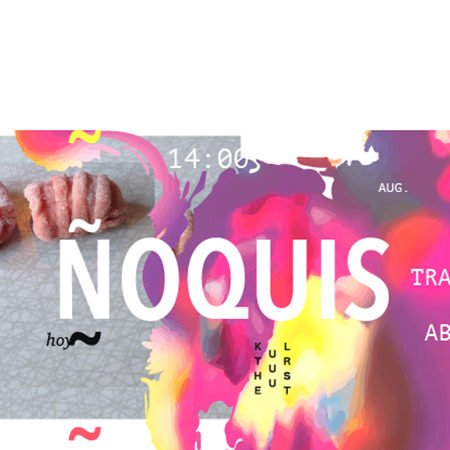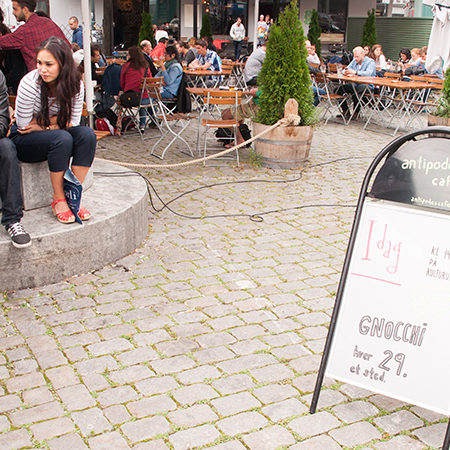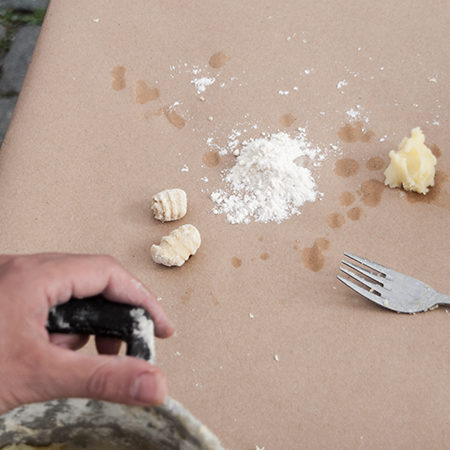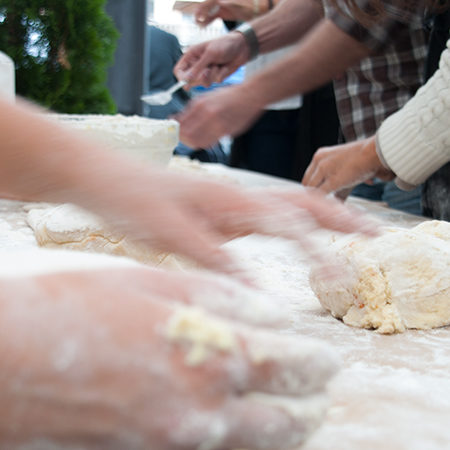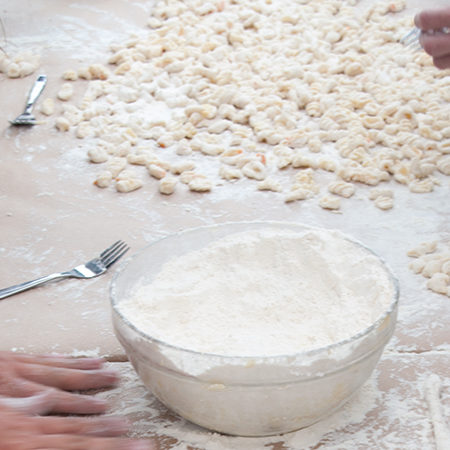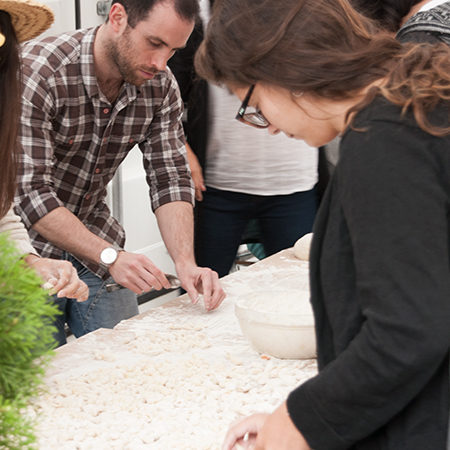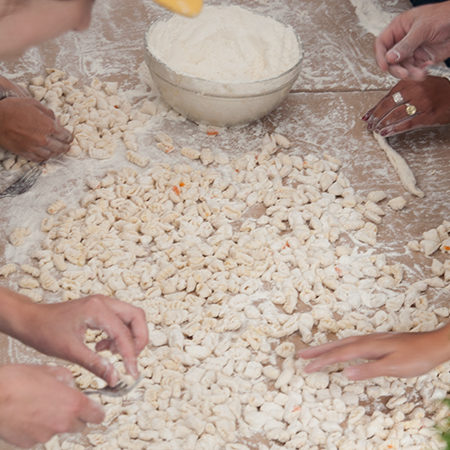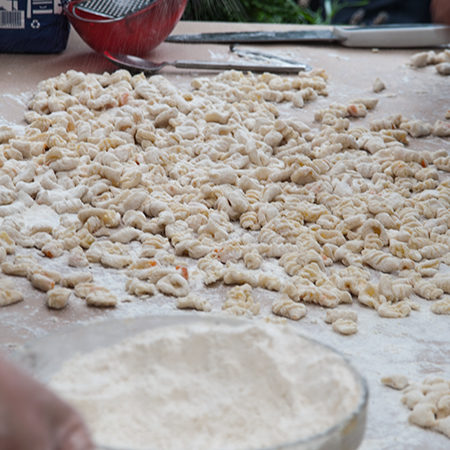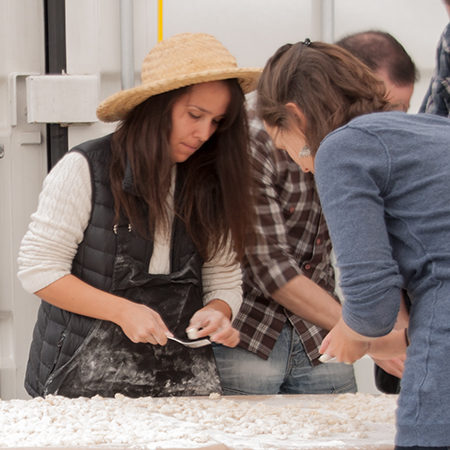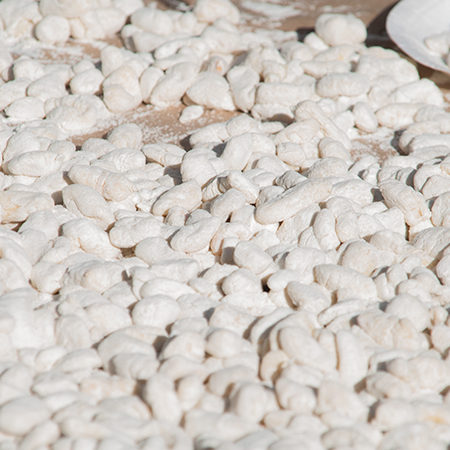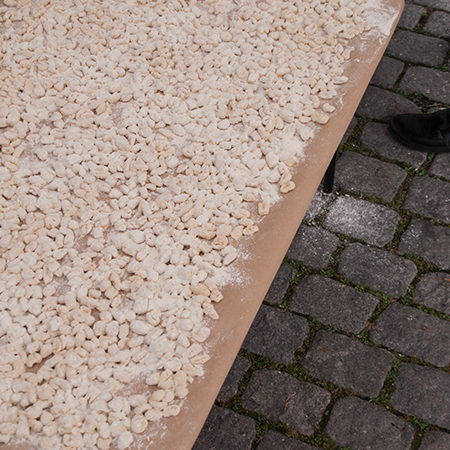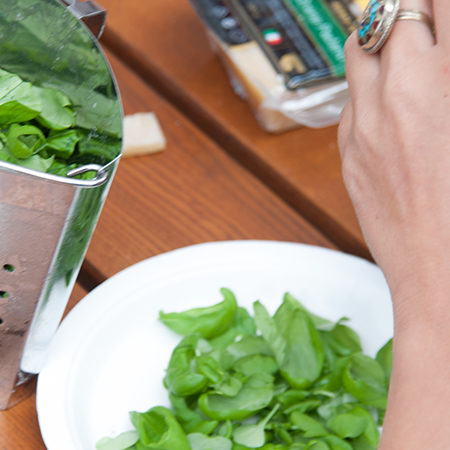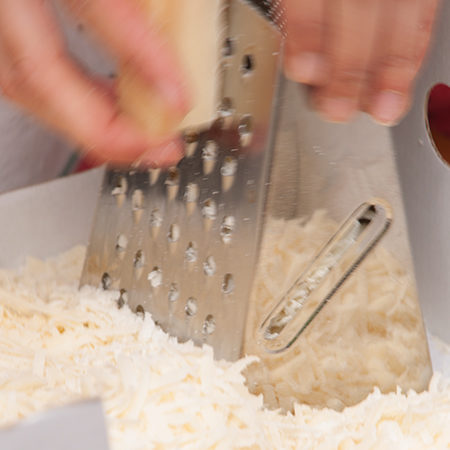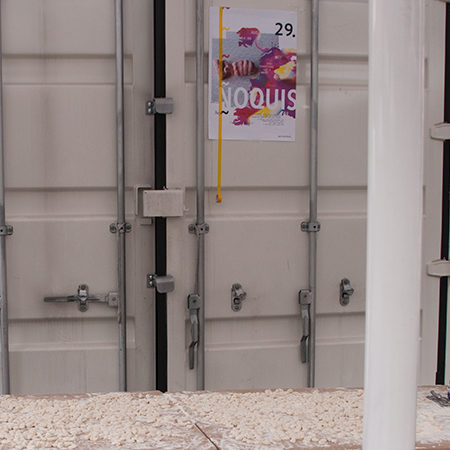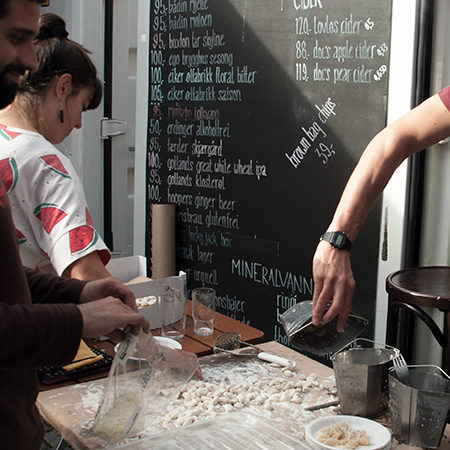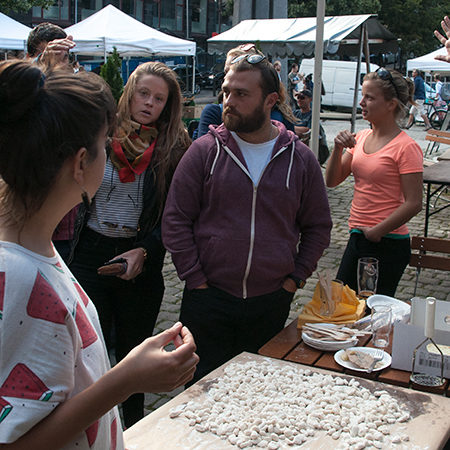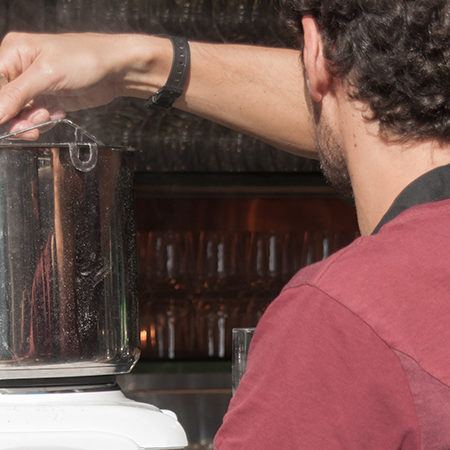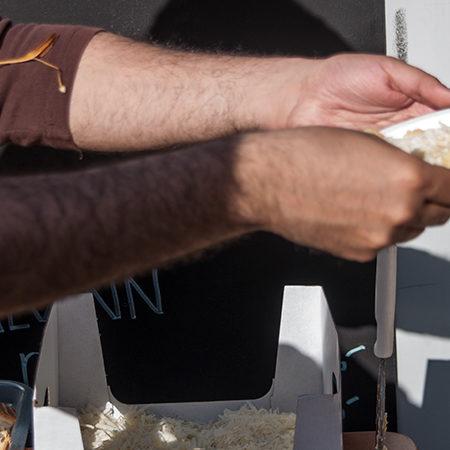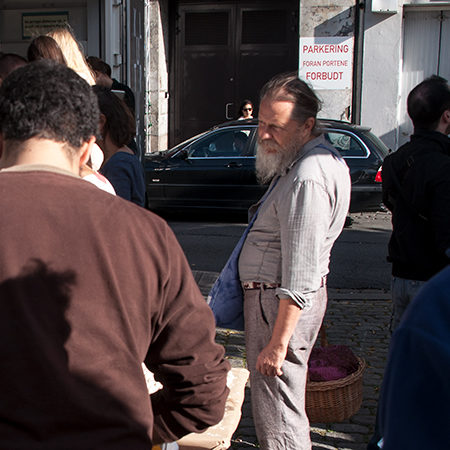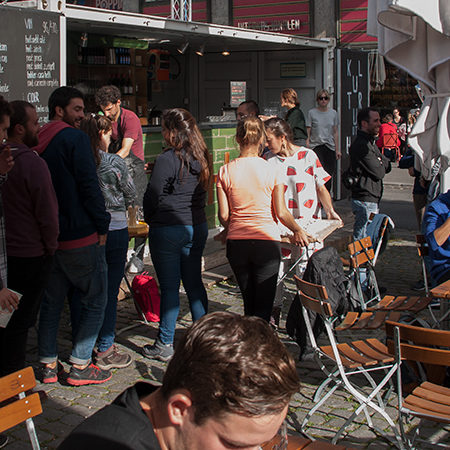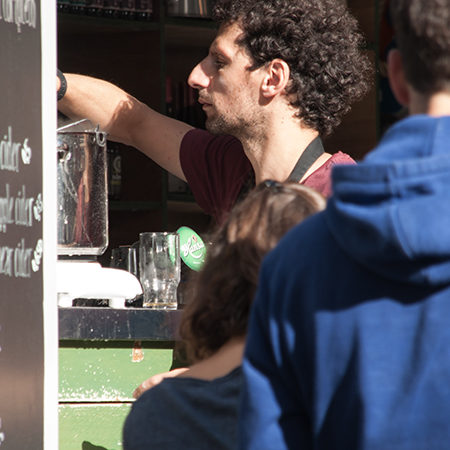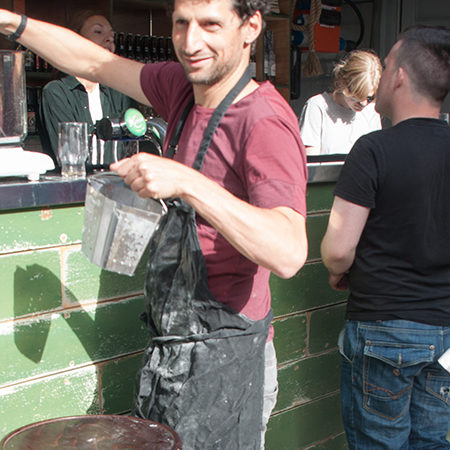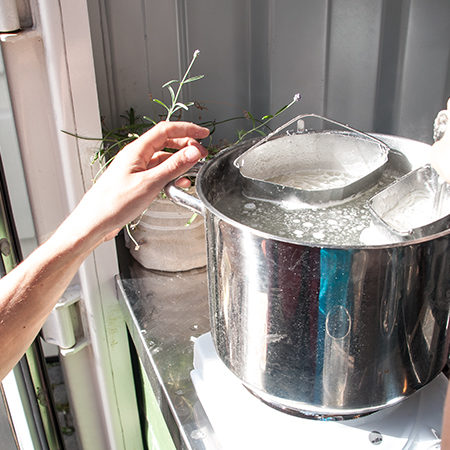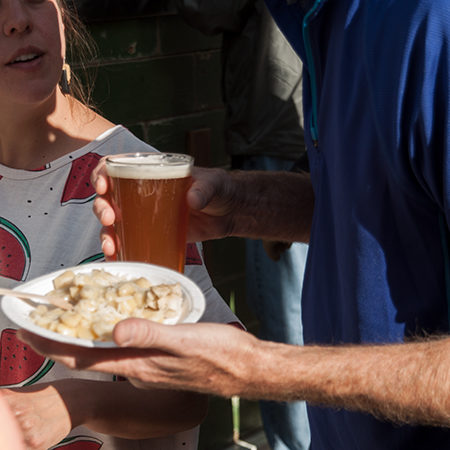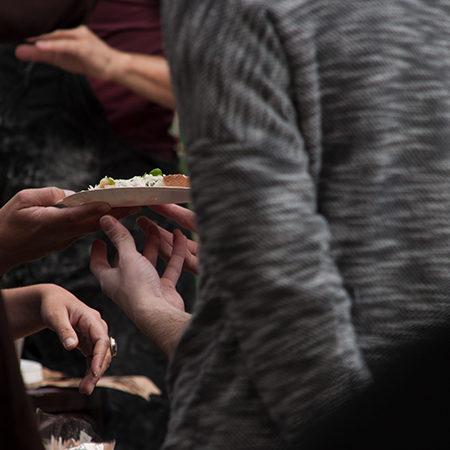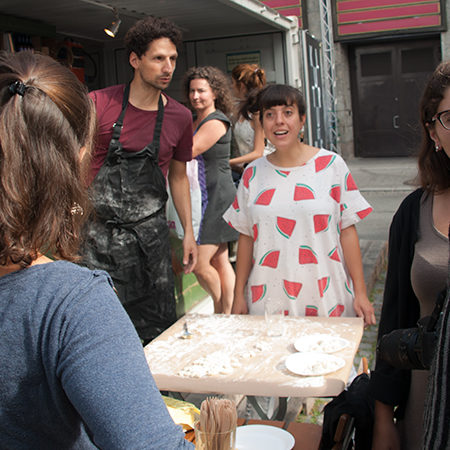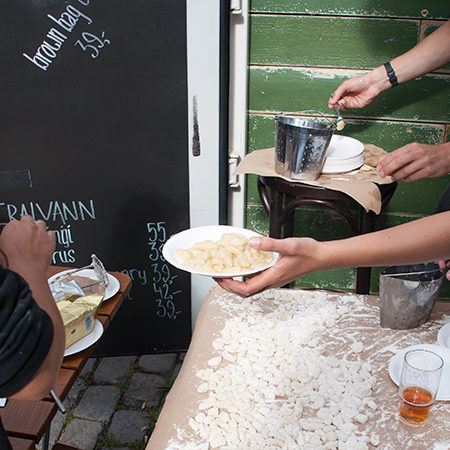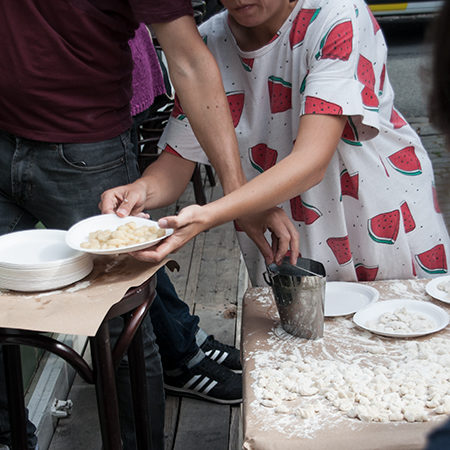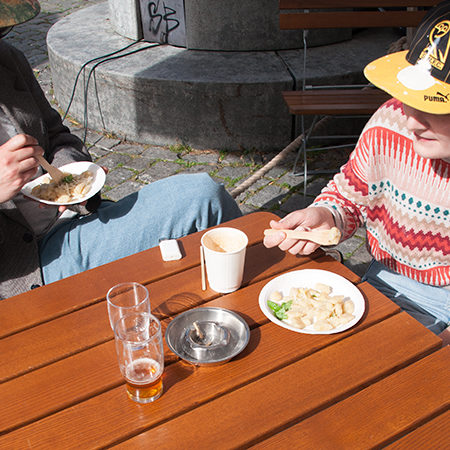Overview
- Estantería Intervención urbana / HOY ÑOQUIS
- Ubicación / Región Noruega/ Oslo
- Fecha 2015.08.28
Descripción
Durante el viaje de estudios «Grupo de Viaje», estudiantes de la Facultad de Arquitectura, Diseño y Urbanismo de Uruguay visitan diversas ciudades y obras arquitectónicas a lo largo y ancho del mundo y participan de charlas, talleres y clases previamente coordinados por un equipo docente. Así, durante su visita a Oslo fuimos invitados a dar una charla y a contarles sobre actividades pasadas y modalidad de trabajo. Al ser un 29, coordinamos con Kulturhuset i Oslo, quienes generosamente compartieron su espacio para esta actividad abriendo las puertas a primera hora de la mañana y para posteriormente cruzar la calle y realizar una nueva instancia del proyecto «HOY ÑOQUIS» para la cual tomamos diversas mesas de su extensión «Kulturhuset UT» ubicada en la plaza de Youngstorget, donde preparamos y servimos ñoquis de forma gratuita junto a los estudiantes y todo aquel que se sumó a esta tradicional actividad.
Durante la charla, los estudiantes pelaban papas cultivadas en la granja urbana Losæter, ubicada en Bjørvika, Oslo.
¡Hablemos de tradiciones!
THANKS
Kulturhuset i Oslo
Losæter
Grupo de Viaje 2015, FADU (UY)
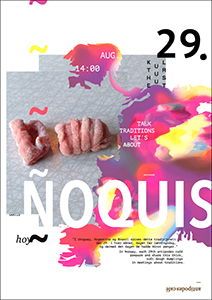
In Uruguay and Argentina, there is a tradition of eating handmade gnocchi the 29th of each month, both in houses and in restaurants. In these last ones, as well as in pasta stores, those days they usually put a sign in the street with the text "HOY ÑOQUIS" (Eng. Today: gnocchi).
Also as part of the tradition, in some places they put a coin (or even notes) under the dish, wishing for money.
This story -that has many versions as all good ones- perhaps should be started highlighting the travel of potatoes from South America to the rest of the world, starting with Europe after their invasion. Later on, poor farmers of northern Italy discovered that they can replace expensive wheat to create a new kind of pasta based on cheap and accessible potatoes, basically dumplings, called gnocchi (Eng. buns/lumps/little balls). This tuber crops has a strong relation with economical vicissitudes, saving from starving diverse populations around the world. Nordic countries knows quite well potatoes for that reason.
In late XIX and beginning of XX centuries, both Argentina and Uruguay where under exponential growth in all senses. But in these times, Europeans weren't in best situation, and particularly Italians flew in millions to those places escaping from economical crisis and wars. Those nations where young and defining their identity on daily basis, and this massive immigration radically affected that construction "through a policy of very strong cultural syncretism." In fact, "there are many Italian traditions that Argentinians [and Uruguayans] keep which are almost not existent in Italy." * One of them is to eat gnocchi on the 29th of each month. A simple dish for wishing for prosperity.
Felipe, born in Uruguay has in his family tree those Italians roots that allowed him to have Italian nationality. And thanks for those papers, he could move to Nordic countries without too many complications as if he arrived just as the South American he is.
Since he moved to Norway, impressed by
- the short time that the old Kingdom behaves as a totally independent nation;
- its quite recent and extreme economical richness (with its abundance);
- history of extreme poverty -not so far in time– still present in many gestures of raw simplicity and austerity;
- the potato is easily cultivated in Norwegian climate and soil;
- role of potatoes in history, saving population in hard times such as during Napoleonic wars or WWII, both in dishes and in glasses;
- the current displacement of potatoes towards modern imports such as rice, pasta and noodles;
- the strong policy against immigration;
- the apathy towards the foreign and the unknown, certified by the law of Jante from 1933;
- the commercial new traditions, such as eating taco on Friday nights or reading crime novels on April.
Felipe started cooking gnocchi sporadically the 29th -and last years on each one- in gathering with the aim of talking about traditions. Who makes them? why? and so on…
Venues and amount of visitors are different from meeting to meeting, but gnocchi are always served gratuitously. During 2016 "HOY ÑOQUIS" gatherings were supported by Oslo Kommune, Bydel Gamle Oslo. (Frivillighetsmidler 2016)

